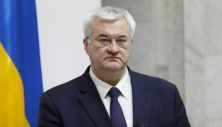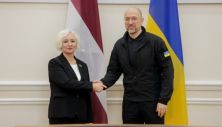Russia’s total military spending far exceeds its budget capabilities and could lead to the collapse of corporations and banks, thus affecting Moscow’s negotiating positions.
That’s according to an article for Navigating Russia by Craig Kennedy, a former banker, who is now part of the Davis Center for Russian and Eurasian Studies at Harvard University, Ukrinform reports.
Moscow is stealthily financing about half of these military expenses through significant debts, forcing banks to provide loans on non-market terms to companies that supply goods and services to cover the needs of the war, the author notes.
According to him, Moscow is financing the war, first of all, from the defense budget, which analysts usually consider “surprisingly resilient.” The second track is a low-profile, off-budget financing scheme that appears equal in size to the defense budget.
The Kremlin is forcing Russian banks to extend preferential loans to war-related businesses on terms set by the state.
Since mid-2022, this off-budget financing scheme has helped drive an unprecedented $415 billion surge in overall corporate borrowing.
From $210 to $250 billion of this surge consists of compulsory, preferential bank loans extended to defense contractors—many with poor credit—to help pay for war-related goods and services.
Initially, this off-budget defense financing scheme proved advantageous to Moscow by enabling it to maintain its official defense budget at manageable levels. That misled observers into concluding—incorrectly as it turns out—that Moscow faces no serious risks to its ability to sustain funding its war.
More recently, however, Moscow’s heavy reliance on its off-budget, compulsory lending scheme has begun to cause serious, adverse consequences, Kennedy points out.
It has become the main driver of inflation and rising interest rates, and is also creating the prerequisites for a systemic credit crisis.
For Moscow, credit event risk—with its seismically disruptive potential—will be of far more immediate concern than slow-burn risks like declining GDP. Moscow now faces a dilemma: the longer it puts off a ceasefire, the greater the risk that credit events—such as corporate and bank bailouts—uncontrollably arise and weaken Moscow’s negotiating leverage.
According to Kennedy, this will accordingly give Ukraine and its allies unexpected leverage in potential negotiations.
As reported earlier, Russia’s economy and war efforts are increasingly strained, casting doubt on Vladimir Putin’s ability to sustain the war in the long term.
Read also: Zelenskyy: Ukraine ready to hand over DPRK POWs in exchange for Ukrainian soldiers held in Russia













